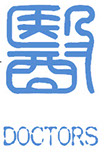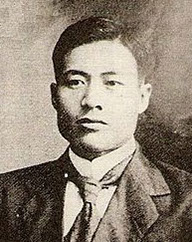
Physician Portraits Jiang-Wei-Shuei
Jiang received traditional Chinese education when he was little. He then turned to study in a Japanese school when he was 17. 1910, at the age of 20, he entered National Taiwan University College of Medicine to study medicine.
1914, he persuaded students of NTU College of Medicine to join an organization, which was to promote protection of Taiwanese people’s rights. 1915, he graduated from college with the second best grade, and was then resigned to work as an intern in Yilan Hospital. Before long, he founded Da-An Hospital in Taipei in 1916.
October 17th, 1921, lots of the educated in Taiwan gathered in Taipei in order to set up Taiwanese Cultural Institute, in the hope of progressing Taiwanese culture. This organization was mainly directed by a group of elites of Taiwanese people, including Jiang.
1927, TCI started to support social action to set up a council consisting of Taiwanese only. In addition, TCI also held a huge amount of educational events. It established clubs which taught people how to read newspapers. Other than that, TCI held a lot of seminars, gave a lot of speeches, set up summer schools, and introduced dramas, movies, musical concerts to people all around Taiwan, so as to participate in the “Renaissance of Taiwanese culture”.
1921, one of Jiang’s articles, known as “The Prescription for Taiwan” was published by TCI. As a physician, Jiang compared Taiwan to a patient, analyzed the reason why she’s ill, and advised us how to cure her or even make her better.
From Wikipedia
(1890/08/06-1931/08/05)
Jiang-Wei-Shuei, born in Yilan, was an ethnic activist as well as a physician during the Japanese Colonial Period. He established Taiwanese Cultural Institute, an organization to educate Taiwanese people and to promote nationalism to the public. He also established People’s Party of Taiwan, the first political party established by Taiwanese, and was considered to be one of the most influential leaders of the decolonization activities against Japan.


Home










